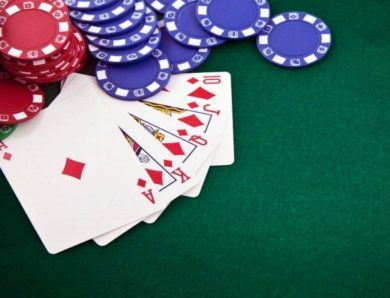
Psychology behind online slot game design and player behaviour
Online slot games are a wildly popular form of gambling entertainment. With their flashy graphics, exciting sound effects, and the tantalizing possibility of big jackpots, slots have a powerful allure that keeps players coming back for more. But have you ever wondered about the psychology behind how these games are designed and why they are so effective at capturing attention and encouraging repeat play?
Anticipation and intermittent rewards
The critical principle of intermittent rewards is the psychological hook that makes slot machines compelling. This refers to the fact that payouts in slots come at random, unpredictable intervals – you never know when the successive win will hit. This random reward schedule taps into the exact mechanisms in the brain that make activities like hunting or fishing engaging. The anticipation of a potential jackpot at any moment creates a constant sense of excitement and possibility slot gacor olympus.
Psychologists have found that this intermittent reward pattern is more compelling and motivating than receiving a reward every single time. Pleasurable neurochemicals like dopamine are released in the brain when we experience a win and even in anticipation of a potential win. The possibility of hitting it big becomes a powerful incentive that’s hard to walk away from.
Near misses and the illusion of control
The trick that slot machines employ is when the reels stop just short of lining up in a winning combination. Even though these are losing spins, they still activate many of the same reward pathways in the brain because they feel so close to a win. These near misses are deliberately manufactured by the game designers and programmed to occur with careful frequency, as they give players the irresistible impression that they are oh-so-close to winning big. This influences our natural tendency to see patterns and connections, even where none may exist.
This also ties into the “illusion of control” – the mistaken belief that we can exert skill or influence over a game entirely based on random chance. Slot machines are very good at fostering this illusion, with “stop” buttons that make it feel like we can control the reels (we can’t) and machines that seem to go through “hot streaks” where they pay out more frequently (another illusion – the odds are the same on every spin). These illusions keep us engaged by making it feel like we’re playing an active role, even though the outcome is always random.
Audio-visual overload and immersion
Walk into any casino and immediately notice the sights and sounds of slot machines dominating the space. Online slots use these same principles of vivid graphics, flashing lights, and upbeat sounds to capture attention and elevate arousal levels. This sensory stimulation floods the brain and blocks out other thoughts or distractions: slots when you win, slotsebratory music and animations when you are excited. At the same time, disappointing losses are accompanied by subdued, muted sound effects that downplay the emotional impact and keep you focused on the next spin.
The audio-visual elements capture focus, and slots also capitalize on our natural human desires for connection, meaning, and accomplishment. Many online slot games revolve around adventure, wealth, or luxury, tapping into aspirational fantasies. Unlocking new skins, icons, or bonus levels gives players a feeling of achievement and progression.
Some games also foster a sense of competition or teamwork by displaying leaderboards, allowing players to send gifts, or pitting them against each other in tournaments. We’re fundamentally social creatures, and these communal elements make the games feel meaningful and keep players invested.




